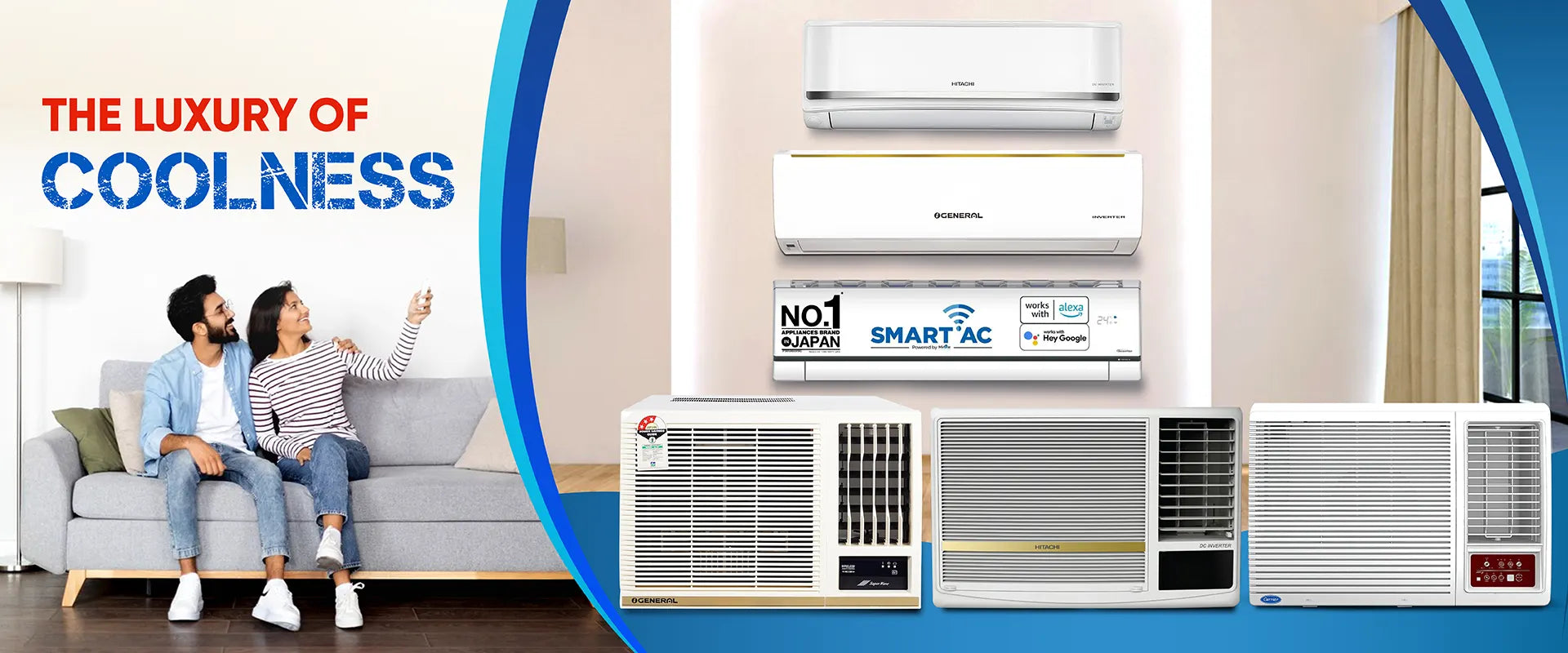What Should I Check Before Buying an Air Conditioner?

Purchasing an air conditioner (AC) is a significant investment, and choosing the right one requires careful consideration. To make an informed decision, you should evaluate several key factors, including the AC’s capacity, energy efficiency, and additional features. This guide will help you understand what to check before buying an air conditioner to ensure you select the best unit for your needs.
1. Determine the Right AC Capacity
The capacity of an air conditioner directly affects its cooling efficiency. Choosing the right size ensures optimal performance and energy savings.
-
For Small Rooms (up to 150 sq. ft.) → A 1-ton AC is sufficient.
-
For Medium Rooms (150 – 250 sq. ft.) → Opt for a 1.5-ton AC.
-
For Larger Rooms (250 sq. ft. and above) → Choose a 2-ton or higher capacity AC.
An undersized AC will struggle to cool the room, while an oversized one will consume more energy than necessary.
2. Check the Energy Efficiency Rating (EER)
Energy efficiency is a crucial factor when buying an AC. Look for the BEE star rating, which indicates how efficiently the unit consumes power.
-
5-star AC → Offers the highest energy savings and lower electricity bills.
-
3-star AC → Provides moderate efficiency, balancing cost and performance.
-
1-star AC → Consumes more power, leading to higher electricity costs.
Choosing a higher-rated AC may have a higher upfront cost but will save you money in the long run through reduced energy bills.
3. Understand the Type of AC You Need
There are different types of air conditioners available, and selecting the right one depends on your space and preferences.
-
Split AC: Suitable for larger rooms, offers better cooling efficiency, and operates quietly.
-
Window AC: Ideal for smaller spaces, easier to install, and more affordable.
-
Portable AC: A flexible option for temporary cooling needs.
-
Inverter AC: Provides consistent cooling and adjusts power consumption based on room temperature, making it more energy-efficient.
4. Look for Advanced Features
Modern air conditioners come with several smart features that enhance comfort and convenience.
-
Air Purification Filters: Removes dust, allergens, and bacteria, ensuring cleaner air.
-
Dehumidification Mode: Ideal for humid climates, as it reduces excess moisture.
-
Wi-Fi Connectivity & Smart Control: Allows you to control the AC remotely using your smartphone.
-
Sleep Mode & Timer: Enhances comfort while saving energy during the night.
5. Noise Levels and Airflow
Check the noise level of the AC unit, especially if you’re installing it in a bedroom or office.
-
Silent operation models → Ensure minimal disturbance during sleep or work.
-
Airflow settings → Ensure the AC provides uniform cooling across the room.
6. Warranty and After-Sales Service
Always check the warranty period and the brand’s service network before purchasing an AC.
-
Standard warranty → 1 to 2 years on the unit and 5 to 10 years on the compressor.
-
After-sales support → Opt for a brand with reliable service centers for quick and efficient maintenance.
7. Budget and Brand Comparison
Compare different brands and their pricing before making a decision.
-
Premium brands → Offer advanced features and better energy efficiency.
-
Budget-friendly options → Provide essential functions at a lower price.
Ensure you strike the right balance between features and your budget.
Conclusion
Before buying an air conditioner, consider the capacity, energy efficiency, type, advanced features, and after-sales service. By evaluating these factors, you can select an AC that offers optimal cooling, energy savings, and long-term reliability. Choose wisely and enjoy a comfortable indoor environment all year round!





